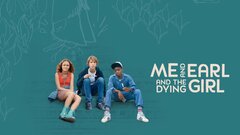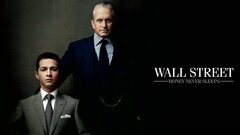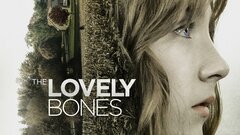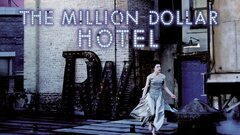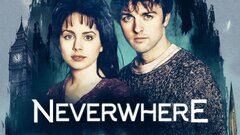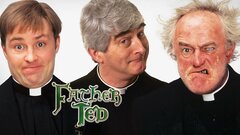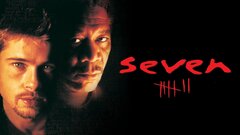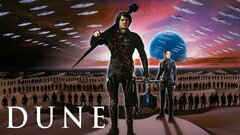Widely credited with inventing the ambient genre, ground-breaking composer, producer and self-described non-musician Brian Eno continued to challenge the way in which music is perceived. A key member of glam pioneers Roxy Music, Eno then left to forge an ambitious solo career, pushing musical boundaries with an array of innovative production techniques and an emphasis on theory over practice on a prolific series of increasingly experimental albums. Hailed as one of the most influential artists of his generation, Eno's leftfield approach regularly infected the mainstream thanks to his soundtrack work, string of high-profile collaborations and perhaps most notably, his production duties on some of the best-selling and most critically-acclaimed albums in pop history.
Born in Suffolk, England in 1948, Eno first became inspired to pursue a music career after attending an art school lecture from The Who's Pete Townshend on the use of tape machines by non-musicians. After joining the avant-garde performance art troupe Merchant Taylor's Simultaneous Cabaret and Cornelius Cardew's Scratch Orchestra, he rose to prominence as the flamboyantly-dressed synth and treatment man in Roxy Music. Eno's technological wizardry helped to define the band's first two albums but as tensions with frontman Bryan Ferry continued to grow, he decided to jump ship following the end of the promotional tour for 1973's For Your Pleasure.
Eno wasted little time in seeking new ventures, developing a tape delay system with Robert Fripp named Frippertronics later that year which essentially paved the way for sampling and also recording an album with the King Crimson frontman (No Pussyfooting), before launching his solo career in 1974 with the experimental art rock of Here Come The Warm Jets. Following a brief stint fronting pub-rock outfit The Winkies and a lengthy stay in hospital with a collapsed lung, he released Taking Tiger Mountain (By Strategy) (a concept album inspired by postcards of a Chinese revolutionary opera), gained his first producer credit on Robert Calvert's Lucky Leif and the Longships and composed the music for spoken word LP Lady June's Linguistic Leprosy.
Left bedridden for several months in 1975 following a serious car accident, Eno began to develop his pioneering ambient sound on the minimalistic Another Green World and more significantly on the instrumental Discreet Works, his first release on the Obscure label he founded to give increased public exposure to lesser-known composers. After hooking up with ex-Roxy Music bandmate Phil Manzanera as part of the supergroup 801, Eno made his last '70s foray into rock with Before and After Science before returning to more ambient fare on 1978's Music For Films, a conceptual piece intended as a soundtrack for imaginary motion pictures, and Music For Airports, the first in a four-part series which would later include The Plateaux Of Mirror, Day Of Radiance and On Land.
Having worked on David Bowie's seminal Berlin trilogy (Low, Heroes, and Lodger) and helmed records by Ultravox, Devo and Talking Heads, Eno had also become an in-demand producer. After teaming up with David Byrne on 1981's My Life In The Bush Of Ghosts and brother Roger on 1983's Apollo: Atmospheres and Soundtracks, he joined forces with Daniel Lanois and U2 for the first time on 1984's The Unforgettable Fire, kick-starting a commercially successful partnership which would also later result in The Joshua Tree, Achtung Baby (for which he won a Producer of the Year, Non-Classical Grammy Award) and the one-off project Passengers.
Following 1985's Thursday Afternoon, Eno took a break from his solo career, only resurfacing five years later with John Cale collaboration Wrong Way Up. But he soon made up for lost time, releasing both the rock-oriented return Nerve Net and the more ambient The Shutov Assembly in 1992 before following them up a year later with Neroli. Continuing to expand his creative vision, he then began exploring the concept of generative music with a series of home computer projects, created a multimedia exhibition with Laurie Anderson entitled Self Storage and released 1997's Extracts From Music For White Cube, the first of several records designed specifically for an art installation.
In-between further collaborations with Robert Fripp (The Equatorial Stars) and David Byrne (Everything That Happens Will Happen Today), Eno unveiled his first solo vocal album in 15 years with Another Day On Earth, contributed to records by Belinda Carlisle and Dido, and struck up another partnership with a world-conquering stadium rock act by producing Coldplay's Viva La Vida or Death and All His Friends. After providing the score for Peter Jackson's "The Lovely Bones" (2009), Eno then returned to the live stage with improv outfit Pure Scenius, later recording Small Craft On A Milk Sea with two of its members, Jon Hopkins and Leo Abrahams. In 2012, he returned to his signature ambient sound with the 76-minute composition Lux.




















